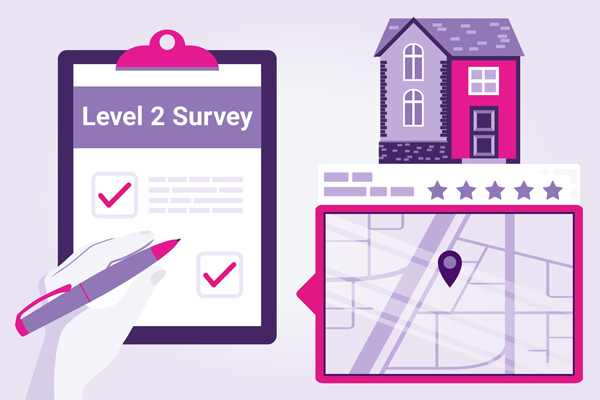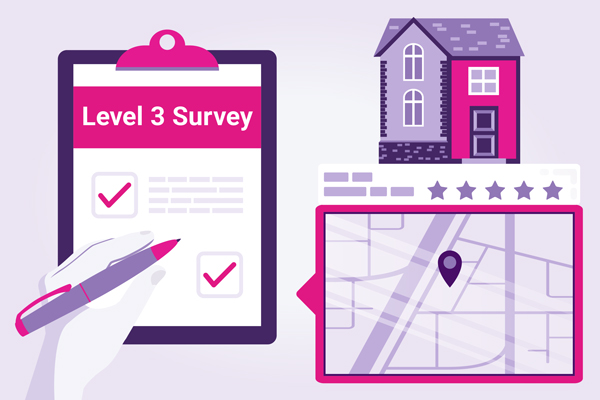When buying a house or flat in the UK, it’s recommended to have a house survey done before you purchase the property. The survey delivers an expert account of the property’s condition and clearly outlines any problems that you may need to be aware of.
In this article, we’ll be discussing the types of house surveys and why you should consider one before buying your new home.
Types of home surveys

The type of home survey you have will depend on the property you’re looking to purchase. The Royal Institute of Chartered Surveyors (RICS) wanted to increase consistency and transparency across residential surveying and therefore introduced three levels for the RICS Home Survey.
The right survey will be determined by the age, condition, size, and originality of the property. The three levels are outlined below:
Level 1
This is the most basic type of survey prospective homeowners can choose and was previously called a ‘Condition Report’. The surveyor will use a traffic light system to provide an overview of the property’s condition, highlighting issues to be aware of, but without going into detail.
This type of survey is most suitable for standard, modern properties that are already in good condition. The buyer will likely want this survey for peace of mind.
Level 2

This mid-level survey is the standard choice for most buyers. It’s most suitable for properties in reasonable condition and has a simple layout.
The surveyor will highlight any problems that might affect the property’s value, as well as provide advice on any repairs or maintenance required. They should also point out anything that doesn’t currently meet expected building regulations. As the inspection is non-intrusive, the surveyor can only identify issues at a surface level.
You can choose to have a survey only or a survey and valuation. The latter includes all features of a level 2 survey, as well as a market valuation and insurance reinstatement figure.
Level 3

This is the most in-depth type of survey, offering a comprehensive analysis of the structure and condition of the property. It’s the best choice if your potential new home is over 50 years old or in poor condition.
It’s also worth considering if you’re planning to carry out significant work on the property or have major concerns about its structure and condition. The surveyor will use various tools, including laser levels and moisture meters, to carry out a thorough inspection.
They will list any defects and advise on repairs and maintenance. You can also request projected costs and timings for any repair work that may need to be carried out following the survey.
If you’re uncertain about the appropriate survey for your property of interest, seek guidance from your surveyor. Keep in mind that if the surveyor determines that the selected survey isn’t suitable, you might need to repeat the process. The surveyor cannot proceed if the chosen survey doesn’t align with the property’s specific needs or requirements. Seeking advice from a surveyor when unsure can be immensely valuable.
 Hi Boox Popular Magazine 2024
Hi Boox Popular Magazine 2024



